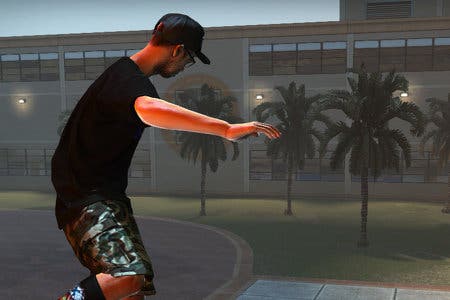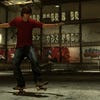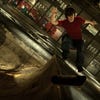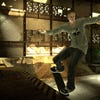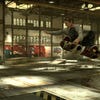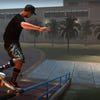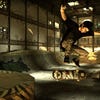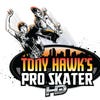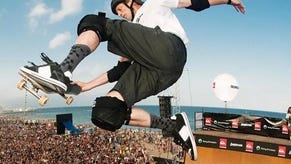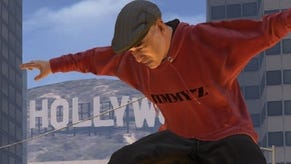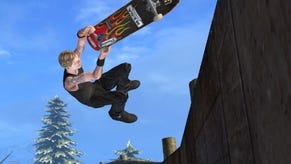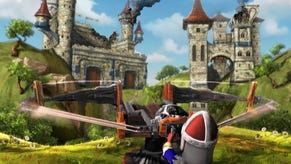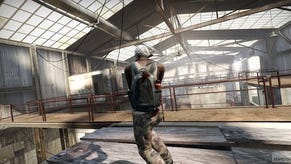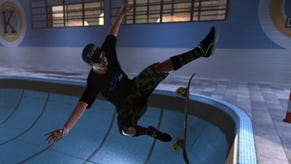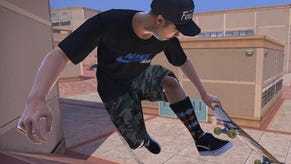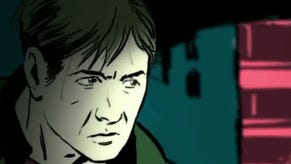Tony Hawk's Pro Skater HD Review
Bump and grind.
In 1999 Tony Hawk's Pro Skater benefitted from fortuitous timing, arriving at the height of the PlayStation's success just as skateboarding was undergoing its own resurgence around the world. In this way the game became part of a wider success story, helping to drive Sony's console yet further into the mainstream consciousness, while popularizing skateboarding amongst a new generation of players who were led to believe they, with practice, may be able to replicate the on-screen acrobatics at the local skate park.
13 years later and the context of this remake-lite is wholly different. Neversoft's Tony Hawk's series always focussed on attempting to capture skating's essence rather than its exact detail. The games stretched the boundaries of our world's physics to allow players to execute flips, spins and tricks impossible to recreate in real life, but that somehow felt as though they should be possible to recreate in real life, if only one were as skilled and dexterous as Tony Hawk. But midway through the first decade of the new millennium, the series grew tired, its creators struggling to find new features with which to freshen a formula they had all but perfected.
In 2007 EA Black Box's Skate debuted, its team of skater creators taking a more realistic approach to the sport. "We don't want to copy Tony Hawk," said Scott Blackwood, the game's executive producer. "We don't want to waste one or two years of our lives just recreating something that, for what it was, had pretty much been perfected already."
Meanwhile at the other end of the spectrum, Ubisoft's Shaun White Skateboarding ramped up the physics-defying skater super-heroics with a game about urban renewal, while Neversoft's replacement, Robomodo, prodded at cumbersome peripherals in Tony Hawk: Ride and Shred.
Seemingly, with creative perfection comes creative exhaustion - there was nowhere left for skateboarding game makers to creatively explore. EA retired Skate. Activision retired Tony Hawk's. We retired our thumb decks.
So Tony Hawk's Pro Skater HD, a stripped back amalgam of seven stages drawn from the first two games in the series, arrives banking on nostalgia, not zeitgeist for its appeal. Robomodo has shaken itself free of Ride for the project, rebuilding the PlayStation games from scratch, rewriting the physics engine in Unreal (extraordinarily, the original game was written in a modified version of the first Resident Evil engine) and seasoning the package with some contemporary skaters and a child's fistful of new modes.
What's immediately striking is the precision required by the game in executing tricks and stringing together combos. The Tony Hawk's games have a reputation for being unusually forgiving, rewarding effort over exactness in allowing their player to string together grinds, kick-flips, and manuals. It's a reputation that Skate's more weighty, unforgiving approach heightened, and yet Tony Hawk's Pro Skater HD is immediately more cumbersome in the palms than in the memory. Some of that is down to the passage of time - first generation 3D games feel sharper and less rounded than today's experiences. But some of it is the remake itself, which feels somehow off.
There's a scrappiness to the physics that occasionally sends your character pin-wheeling off into the sky, and which makes wall grinds harder than they ever were in the past. It's a problem exacerbated by the Xbox 360 controller, which prevents tight accuracy when inputting specific moves. This is a problem because, at its heart, Tony Hawk's is an arcade score attack game. Repeat a trick and you earn fewer points the second time, a smart mechanic that encourages players gunning for the top scores to deliberately mix up their play style and not rely upon a handful of muscular phrasings. But with a d-pad that can all too often render a left input as a down, a little too much concentration must be allocated to your fingers, preventing that sense of flow that the original games elicited so readily.
It's a meagre package too, with just seven stages pulled from the first two PlayStation games. Where, in a pre-GTA3 world these levels once felt huge, today they feel somewhat constricted and, in their new HD clothes, somewhat barren too. There are classics here, from the starting stage Warehouse through School 2 and Hangar, but there are a couple of duds, including Downhill Jam, a point to point race whose inclusion is somewhat inexplicable.
The structure remains true to the originals. You have two minutes per stage, with a clutch of goals to complete in any order you desire. Three of these are score thresholds that must be passed and the rest involve collecting sets of objects, smashing crates, kick-flipping over key gaps and, of course, collecting the one hidden cassette tape (now updated to a DVD).
The lack of camera control makes hunting for certain objects difficult, although the new addition of maps revealing the location of all collectibles is useful. Complete four objectives and you unlock the next level in sequence and, while there are some bonus modes on offer when you finish the set, the game's completed with little fanfare (even if you do unlock Projectives, a set of new objectives for each stage that must be completed within a one minute tine-limit).
Completing objectives earns money, which is used to purchase new decks and, crucially, upgrades for your skaters. However, the upgrades are on a per-character basis, a somewhat anachronistic way to add longevity that actively discourages all but the most obsessed player to try different skaters.
Beyond the single player campaign there are three multiplayer modes: Graffiti, in which players compete to see who can tag the most objects in a level by tricking the highest scores off them, Trick Attack, in which the player with the highest score when the clock runs out wins and Big Head Elimination, in which you must perform tricks to prevent your head from expanding and exploding. The absence of the classic HORSE mode is a major oversight, as is the lack of offline multiplayer, especially considering the lag issues we've encountered online over the first couple of days.
For players who whiled away the summer holidays with the original Tony Hawk's games, this HD update makes for a curious re-visitation. Some of the deadened appeal is down to the passage of time, systems and ideas that feel of another era, another country - they do things differently there. Some of it is down to ennui with the skateboarding genre, which has been strip-mined to exhaustion. But some of it is down to the execution, which is mostly competent but lacks the spark and energy of Neversoft's original work. It's a copy of an old classic, but an imperfect copy - and one that, in its imperfection, leads us to question the original work.
